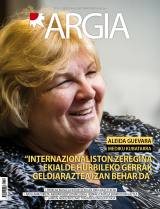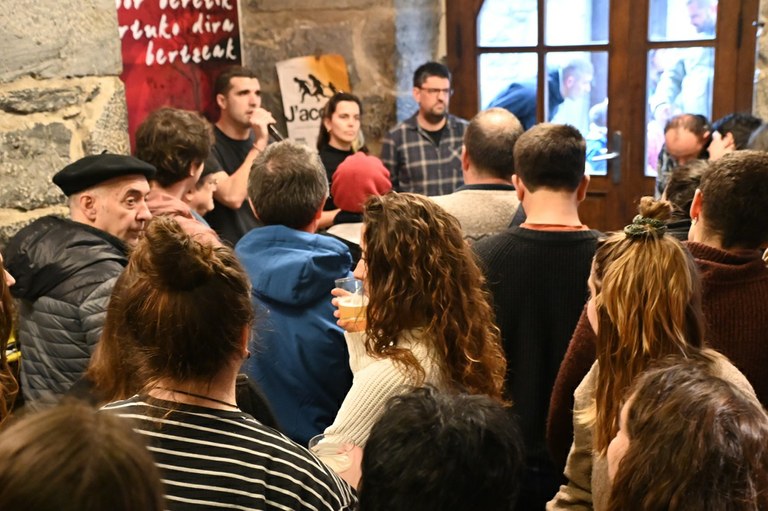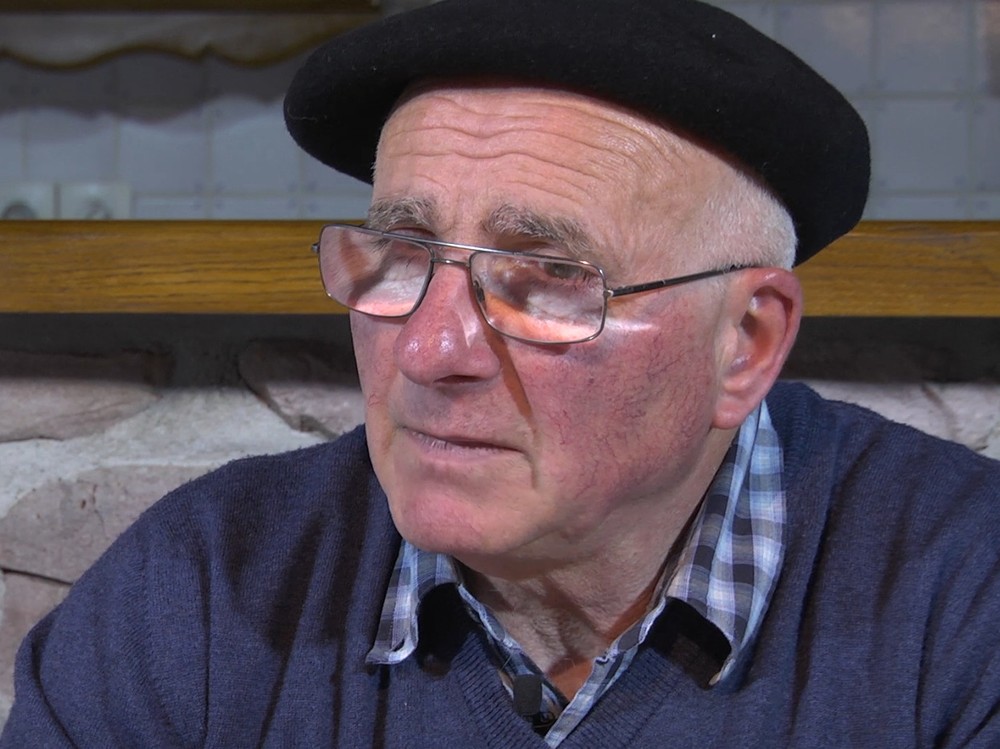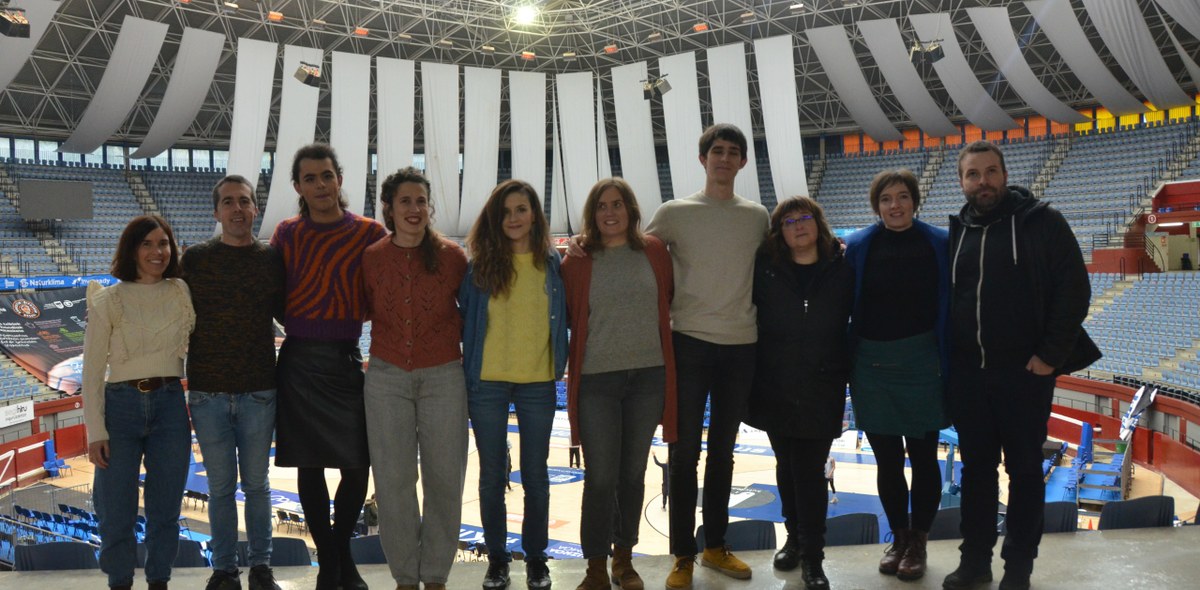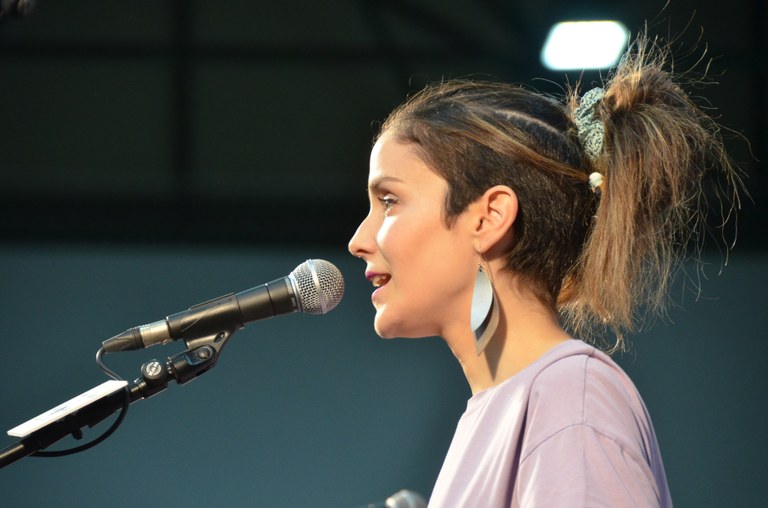Language makes us
- The postcards of the Costa da Morte of Galicia, the taste of octopus and the strength of white wine are known. What we did not know, however, was that orality and improvisation would take us to the Plaza del Obradoiro, the destination of thousands of pilgrims.

Through a good friend we discovered that in Galician schools there were two professors starting to work on the transmission of the regueifa, the traditional Galician copla, thinking that the regueif had room in current education and what to say.
One morning, one of the promoters of this project appeared at the IES Arratia de Igorre. He walked seven hundred kilometers with his family, and he explained that the Basques and the Galicians, the Bertsolaris and the Regueifeiros had a lot to learn from each other. He convinced us. We embarked on the adventure. I had guessed it.
The result was an exchange between the students of Bertsolaritza of Arratia and the students of regueifa of Vila de Cruces and Zas. That is, the cultural exchange and experiences among Basque and Galician students. Giving importance to the use of language, the exchange of experiences between pupils and students living in two minority languages. Last year was the first experience, and this year we have repeated it with great enthusiasm. For both the IES Arratia and the Bertso Eskola de Arratia and the Asociación Vizcaina de Bertsolaris, it has been an important bet. Exchanges have been carried out on the basis of oral interaction between students, parents, leisure time, Bertsolaris classes during school hours.
Through Bertsolarism and Regueif, students work language, culture, music and personal and social skills. Through this shared project, we wanted to delve into the communicative, social, playful and aesthetic function, integrative and critical with the Galicians. Placing ourselves in the context of the Basque and Galician culture, we have prioritized the respect and appreciation of the characteristics of the local culture. To do so, they have departed from the similarities of both improvisation practices: melodies, measures and rhymes.
A regueifa is on the table
Regueifa is a makeshift song made in Galician. In the field of orality, and to measure, regueifa is a four-row copla of eight syllables. The virtues of Galician singers are improvisation and the ability to respond at a dizzying rate.
The word regueifa was originally given a meaning: in the past, when a special party was organized on behalf of the new spouses, wine and bread called regueifa were eaten and “poetic battles” were made. The winners of these poetic battles brought home the bread, hence the name and being of the improvised song of the Galicians. Over time, the nature of this habit has changed. From a tradition of farmhouses and rural areas, the bar became an improvisation at the txoko, and has not been able to adapt to the current reality. As a result, a collapse occurred.
However, thanks to collaboration and commitment, regueifa is a tradition that grows again, coming first to the ears of young people and then to the ends of languages. In fact, regueif dreams of feeding on the present despite having drunk from tradition. Music, language and orality can be effective tools for those working on the need to promote regueifa. They are convinced that, supported by the fun of regueifa, the culture of orality that will promote equality, social justice and transforming values are transmitting to descendants.
For this reason, they have begun to offer working-class regueifas or orality workshops aimed at adolescents and adolescents in high schools, and look with admiration at the transmission of bertsolarism in the Basque Country. Here, after years of work, about 25,000 students work Bertsolarism in regulated education, and there are also makeshift groups in many institutes, as a bridge for the Bertso Eskolas. Although they are still far from this objective, they have begun to build their own path, and the development they have carried out in the last two years (teacher training, material processing…) is very interesting. The emergence of new creators and the presence of Regueifeiras women have also greatly reinforced and updated the Regueifa.
“Even though I don’t know how to play the baggy, I’m sorry...”
In this exchange, the wave of Galician melodies conquered us right away. Our melodies, the melodies we use in Bertsolarism, are generally quieter, more narrative. Those of the Galicians, on the contrary, are correct and they build their discourse in four lines, they sing what they have to say squarely. The melody “ai la lai” probably wouldn’t be used many times in Euskera, but we did it almost as soon as we got to the Ribadeo River, and when we were left alone that melody jumped in our heads. Surely the teachers who have still participated in the trip remember it well!
We have learned that the well-known song Maite zaitut is Quiero te mais, although we carry the txapela in the head, they carry boin, we have butterflies like nerves dancing in the stomach, they have the bolborets…
We have learned that communication goes beyond a certain language. With orality and improvisation as axes, we've seen our students create and offer spontaneously, and we've learned that culture, languages, people, is a way to understand each other.
We've learned that we don't need a third language to feel the excitement. The necessary complicity has given us the orality, improvising each one in their language, the nature of the small coplas has given us the feeling that we were doing something big. In public initiatives, we have used simultaneous translation and a real bridge has been created between the Galician and the Basque. Although it has been exciting to show a small sample of the bertsolari activity of Euskal Herria in previous events, out of the agenda, the possibility of singing after dinner has made the initial project more enriching.
We have learned that the means of overcoming borders are within us and that this will be the main key to the future of this initiative, that everyone will continue to sow seeds to achieve oral improvisation from their language and from their knowledge. But that, as we know, not only cures the days that the journey takes. Those of us from the Basque universe and through Bertsolarism have decided to turn emotions and illusions into words, we have been preparing this journey of improvisation for almost all our lives, we carry in our luggage respect for language and different cultures. Learning from others, but also valuing one's own and enriching the other's.
Let us therefore continue, step by step, through the fields of Gorbeiape to the cliffs of Finisterra. “Don’t walk is the lingua, the language makes us.”
Maiatzaren 8an hasiko da Bizkaiko Bertsolari Txapelketako sailkapen fasea. Zortzi saio bikoitz jokatuko dira maiatzeko eguenetan. Sarrerak eskuragai daude bertsosarrerak.eus atarian.
Asteburu honetan hasiko da Gaztetxeak Bertsotan egitasmo berria, Itsasun, eta zazpi kanporaketa izango ditu Euskal Herriko ondorengo hauetan: Hernanin, Mutrikun, Altsasun, Bilboko 7katun eta Gasteizen. Iragartzeko dago oraindik finala. Sariketa berezia izango da: 24 gaztez... [+]
Vagina Shadow(iko)
Group: The Mud Flowers.
The actors: Araitz Katarain, Janire Arrizabalaga and Izaro Bilbao.
Directed by: by Iraitz Lizarraga.
When: February 2nd.
In which: In the Usurbil Fire Room.
In recent years, I have made little progress. I have said it many times, I know, but just in case. Today I attended a bertsos session. “I wish you a lot.” Yes, that is why I have warned that I leave little, I assume that you are attending many cultural events, and that you... [+]







